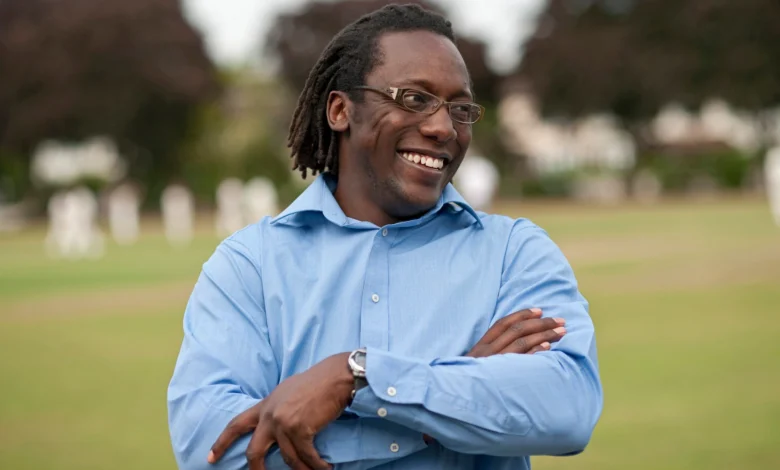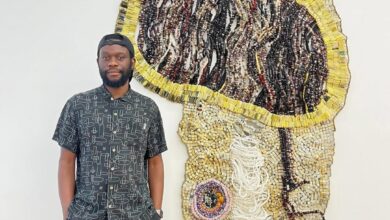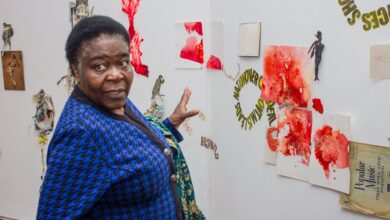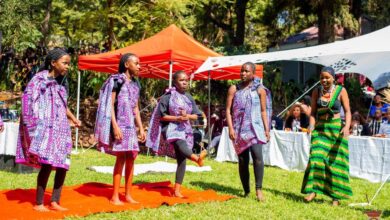Henry Olonga Sparks Debate with Comments on Zimbabwean Citizenship

Former Zimbabwe cricket star Henry Olonga recently ignited widespread discussion after stating in a BBC interview that he no longer considers himself “Zimbabwean in a pure sense.” The comments, made during his coverage of the England vs Zimbabwe Test match at Trent Bridge, triggered strong reactions across social media and beyond.
Olonga, a former fast bowler and national icon, later clarified his remarks, explaining that he was not rejecting Zimbabwe by choice but was effectively rendered stateless after Zimbabwean authorities refused to renew his passport in 2006.
On his social media platforms, he wrote: “Zimbabwe decided for me, not the other way around. They first forced me to renounce all other options and then took the only one I had left away. They left me stateless for nine years. It was ultimately not my decision and I would have happily remained a Zimbo.”
Olonga further explained: “I am not allowed to be a dual national according to their rules so technically I am no longer Zimbabwean.” He urged critics to “familiarise yourselves with the facts before being so mean” and called for less negativity online.
In another BBC interview, however, Olonga encouraged tourists to visit Zimbabwe, indicating that despite bureaucratic challenges, he maintains an emotional connection to his country of birth.
Olonga’s struggle for citizenship has been well documented. In a 2010 interview with Nehanda Radio, he revealed that efforts to renew his passport had been unsuccessful despite his status as a national sports hero. “I represented Zimbabwe at the highest level in my chosen sport which was cricket, and in trying to renew my passport, they basically told me that I’m not a citizen — which is just diabolical,” he said.
The saga left Olonga unable to leave England for nine years until he married his Australian wife, Tara, and subsequently became an Australian citizen. He has since settled in Australia but retains deep emotional ties to Zimbabwe.
Olonga’s journey is one marked by triumph and turbulence. A talented musician, artist, and sportsman, he rose to global prominence in 2003 after wearing a black armband during the Cricket World Cup in protest against the “death of democracy” in Zimbabwe. The protest forced him into exile, where he battled mental health challenges, as he admitted in a Telegraph interview, finding lyrics from his 2001 song Our Zimbabwe triggering.
In his autobiography Blood, Sweat and Tears, Olonga reflects on Zimbabwe’s turbulent political history and the events that shaped his activism. He describes learning about atrocities such as the Gukurahundi massacres, an experience that deeply affected his worldview. “I was handed a dossier by the Catholic Commission for Justice. Some of those stories just made my blood boil,” he told Nehanda Radio.
Olonga’s sporting career was equally remarkable. A cricket prodigy in school, he was known for excelling in multiple disciplines — as a musician, an A-level art student, and a fast bowler. He famously dismissed Sachin Tendulkar, one of cricket’s greatest players, in a match that haunted the Indian star until their next encounter.
Representing Zimbabwe in two Cricket World Cups, Olonga became a household name and a symbol of national pride. Yet the irony remains that the same government he once represented refused to acknowledge his citizenship years later.
Cricket, a sport deeply tied to Zimbabwe’s post-independence identity, was once used as a soft power tool by Robert Mugabe, himself a fan of the game. The cricketing fraternity, led by figures like Peter Chingoka, thrived during the early years of independence, blending sport with the country’s aspirations for global recognition.
Personal anecdotes from those who knew the Olonga family reveal the depth of Henry’s talents and character. Stories of his brother Victor’s sporting prowess and Henry’s own encounters with international stars underscore the human side of this complex figure.
Today, Olonga lives a quieter life in Australia but remains an influential voice on Zimbabwean affairs, using his platform to speak out on citizenship, human rights, and the need for positive change. His recent comments serve as a reminder of the unresolved tensions many in the Zimbabwean diaspora continue to face regarding their national identity.
While some online critics were quick to judge Olonga’s remarks, his story underscores the need for a more nuanced understanding of Zimbabwe’s complex history and the lived experiences of those who have been caught in its political crosscurrents. For Olonga, despite the technicalities of citizenship, the emotional bond with Zimbabwe clearly endures.




